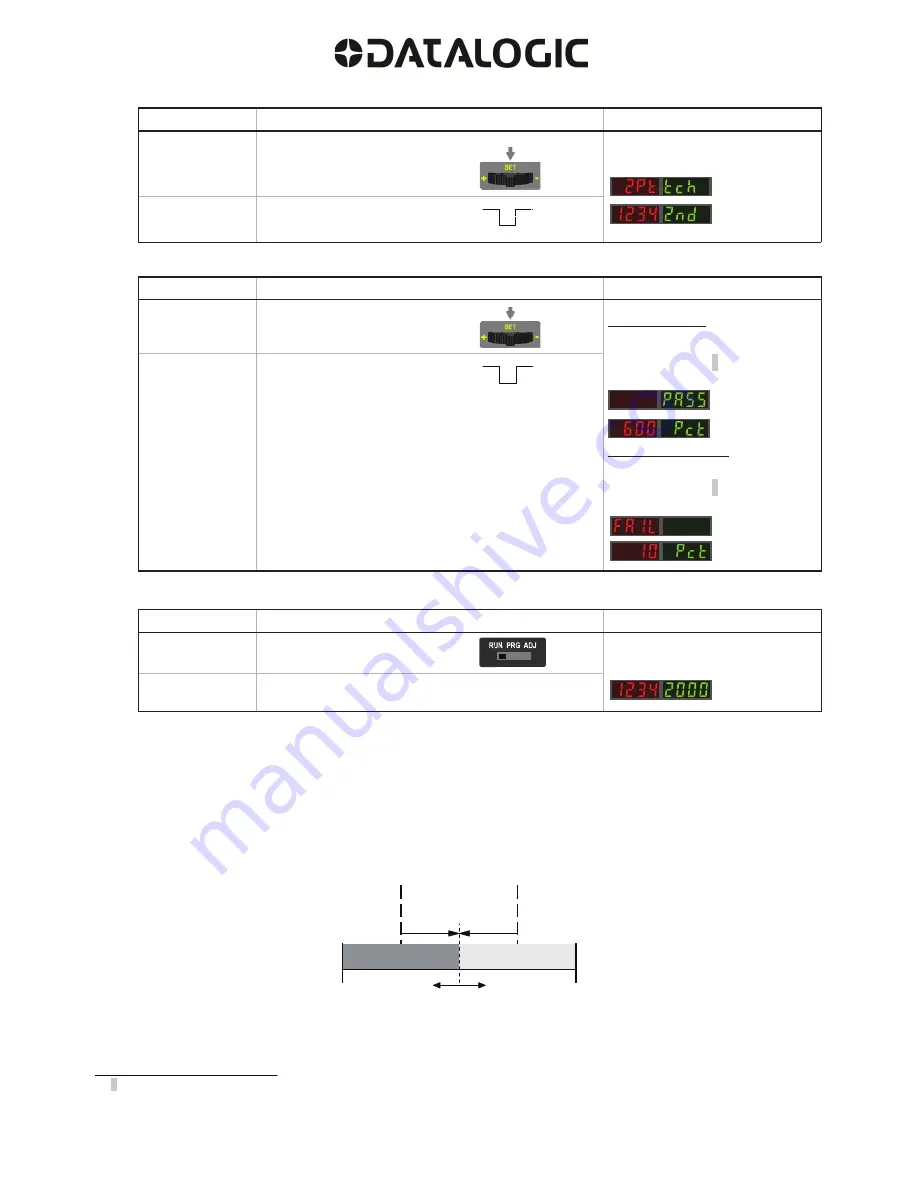
6
See
Troubleshooting
on page 16 for more explanation of the % Minimum Difference displayed after the Two-Point TEACH method
4
2.
Teach the first condition.
Method
Action
Result
SET Button
a.
Present the first condition.
b.
Click the SET Navigation key
Display: Flashes "
2Pt tch
" then holds
on "
1234 2nd
"
Remote Input
a.
Present the first condition
b.
Single-pulse the remote input
NOTE:
Negative pulse for NPN models, positive pulse for PNP models.
3.
Teach the second condition.
Method
Action
Result
SET Button
a.
Present the second condition.
b.
Click the SET Navigation key.
TEACH Accepted
Displays alternate "
PASS
" and %
Minimum Difference
4
; Sensor returns
to Adjust mode
TEACH Not Accepted
Displays alternate "
FAIL
" and %
Minimum Difference
4
; Sensor returns
to Adjust mode
Remote Input
T
a.
Present the second condition.
b.
Single-pulse the remote input.
4.
Return to Run mode.
Method
Action
Result
SET Button
Move the Mode switch to RUN
Display: Red - Signal Level;
Green - Threshold
Remote Input
No action is required; sensor returns to
RUN mode automatically
Dynamic TEACH
•
Teaches
on-the-fly
•
Establishes a single switching threshold
•
Threshold can be adjusted using "+" and "-" Navigation key (Manual Adjust)
Dynamic TEACH is best used when a machine or process may not be stopped for teaching. The sensor learns during actual sensing
conditions, taking multiple samples of the light and dark conditions and automatically setting the threshold at the optimum level (see Fig.
3
).
Darkest Taught
Condition
Sensor positions
threshold midway
Lightest Taught
Condition
between taught conditions
Output OFF
Output ON
Darkest
(no signal)
Position
adjusted by
Manual Adjust
Most Light
(saturated
signal)
T
Figure 3. Dynamic TEACH (Light Operate shown)
The output ON and OFF conditions can be reversed using the LO/DO switch (see
LO/DO Switch
in
Top Panel Interface
).

















